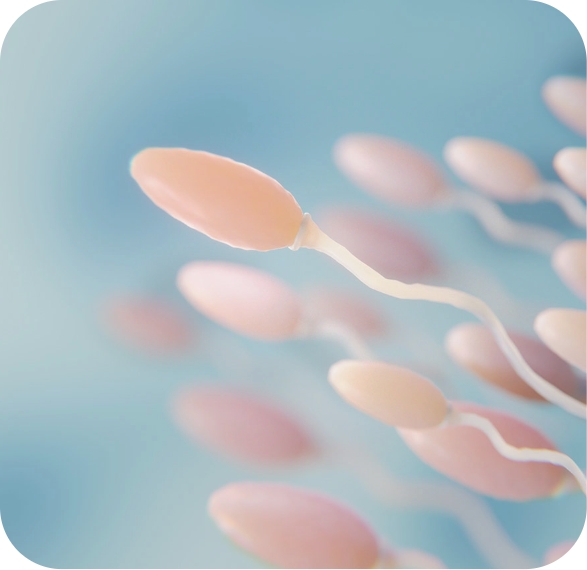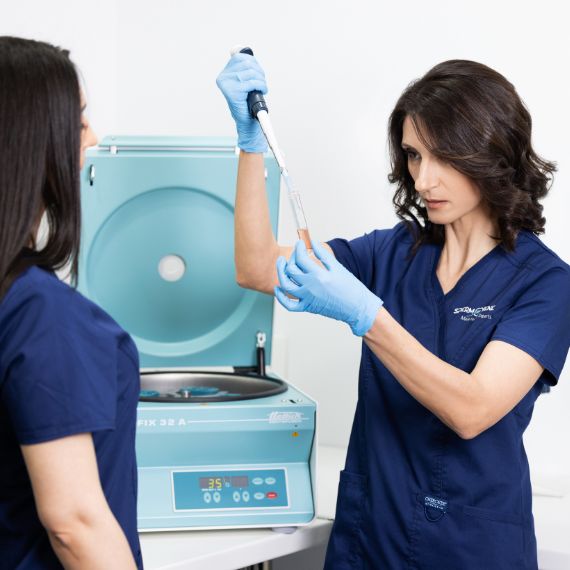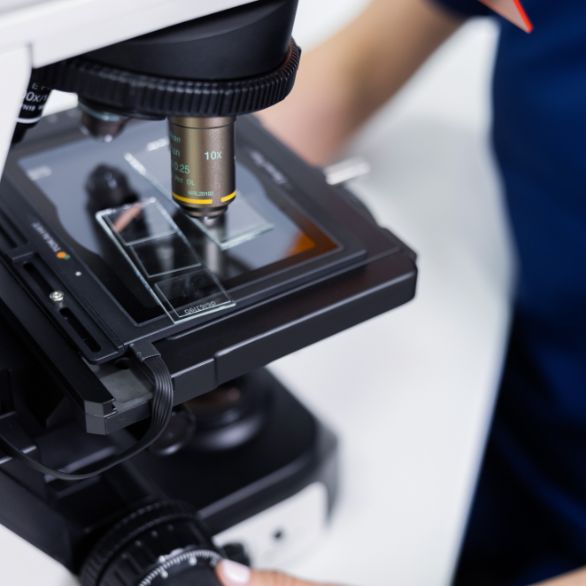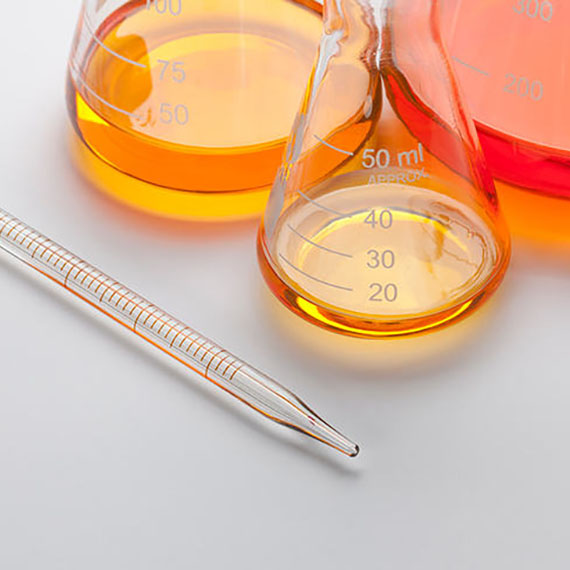Hematological examination
Blood tests are often an essential part of fertility investigations. It’s important to note that certain biochemical tests require fasting, and testosterone levels are best measured in the morning. Other tests, however, can be conducted at any time of the day.

Hormonal examination
Hormones play a pivotal role in regulating sperm production. Therefore, assessing hormone levels is critical in cases of infertility, particularly when dealing with severe oligoasthenozoospermia or azoospermia. Hormonal testing is typically recommended for any infertile man with a sperm concentration below 10×106/ml. The key hormones evaluated include:
- FSH – Follicle stimulating hormone
- LH – Luteinizing hormone
- Testosterone
- Estradiol
- SHBG
- Prolactin
- TSH – Thyroid-stimulating hormone
- FT3
- FT4
- anti-TPO
- anti-TG
In some cases, testing may also include:
- AMH – Anti-mullerian hormone
- Inhibin B
Biochemical examination
There is a growing body of research linking overall health to fertility. Couples with elevated cholesterol levels, for instance, often face delays in achieving pregnancy compared to those with normal cholesterol. Additionally, hyperlipidemia has been associated with erectile dysfunction, disorders in the production of reproductive hormones, and spermatogenesis.
Ask us about our Biochemical Examination Packages (Check-Up)


Immunological screening – Sexually transmitted diseases
These tests are designed to detect antigens or antibodies in the blood that develop following viral infections, including sexually transmitted diseases. Key tests include:
- HIV 1,2: Human Immunodeficiency Virus that causes AIDS (Acquired Immunodeficiency Syndrome).
- HCV: Hepatitis C Virus that causes hepatitis C.
- HBsAg: Hepatitis B Virus that causes hepatitis B.
- VDRL: Treponema pallidum or syphilis-causing spirochete
Fertility Vitamin Screening
Vitamin D
Beyond its role in regulating calcium and phosphorus absorption, Vitamin D is vital for spermatogenesis. Men with low Vitamin D levels often exhibit poor sperm motility, abnormal morphology, and reduced testosterone and Inhibin B levels. A recent study found that men with oligospermia who were given Vitamin D supplements had a significantly higher chance of fathering children compared to those who did not receive the supplement.
Vitamin B12
Vitamin B12 is crucial for DNA synthesis, as well as the metabolism of fatty acids and amino acids. While it is traditionally known for its importance in maintaining the nervous system's health, it also plays a significant role in sperm quality.
Folic Acid
Folic acid is essential for cell division and the production of DNA and RNA. Low levels of folic acid can disrupt spermatogenesis. Additionally, folic acid helps lower homocysteine levels, which benefits cardiovascular health.
